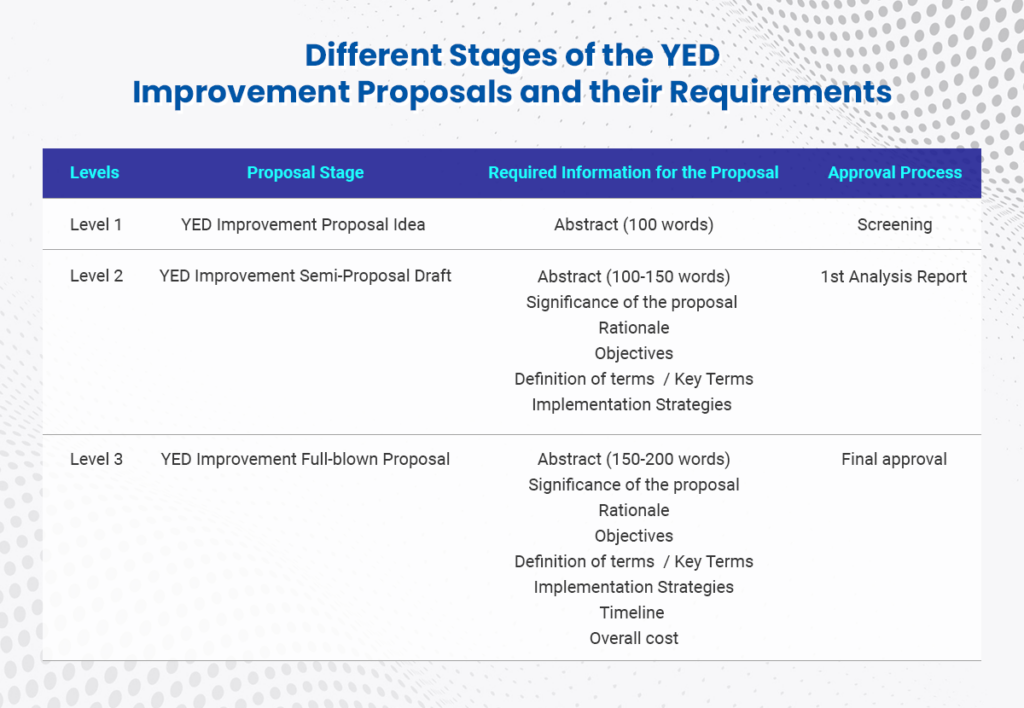3. Decentralized Autonomous Organization (DAO)
A crucial part of Acent’s gamified web is its decentralized governance feature. It is a promising structure regardless of hierarchy or status, where everyone can have a say or vote in the decision-making process. Participants in DAO governance can either be users, developers, or community members who have spent time creating content on the metaweb and hold EDAO tokens.
The YED metaweb reality envisions a self-sustaining platform where decisions about the important matters on the platform are made by the community while redistributing habitat base service charge earnings back to the EDAO governance token holders. In assessing projects or proposals, the YED is guided by the following principles:
Guiding principles
Equity
As a life-service platform, YED ensures that everyone has access to opportunities and advancement in YED. The YED team will continue to identify and address the barriers that prevent the full participation of all members on the platform.
The YED platform will use the EDAO token to represent the participation of each member. All members holding an EDAO governance token may submit proposals and vote for various matters on the platform. The more EDAO governance tokens one has, the greater his/her voting power.
Transparency
All YED proposals submitted, processed, and approved will be posted in designated communication channels that are visible to the public. Each YED member of the community is informed about the recent changes in the platform – whether they be technical upgrades or policy improvements.
Authenticity
The YED platform is intended to provide people with an authentic and parallel web reality experience in which they can mirror their physical world experiences to the virtual world. The platform will be open to the public’s suggestions on how to improve their immersive experience on the YED metaweb.
Creativity
The YED is a dynamic parallel web reality system that encourages the monetization of all its members’ creativity and resourcefulness within a governance environment in which they can decide their own policies. All creative proposals that will improve the platform are welcomed.
Membership
Participating in the idea submission, commentary, proposal submission, and voting is restricted to holders of EDAO Governance tokens.
With the EDAO token, users will have:
- the privilege of receiving ecosystem earnings from the UBI pool;
- the ability to submit proposals that could affect the governance of the YED platform; and
- the ability to trade the EDAO token in the Acent DEX at a market price.
The YED Foundation Board
The YED Foundation Board is closely responsible for day-to-day administration, oversight, management, and other tasks that ensure the submitted ideas and proposals of the YED community have been well selected and funded to become a reality.
The YED Foundation board of directors initiates important matters concerning the growth of the metaweb. They may be able to exert control over ACE’s management simply because they own more EDAO tokens, which have yet to be issued. It is made up of two parts: the Administrative Board, which accepts and reviews DAO proposals; and the Project Management Team, which guarantees that DAO projects that have been authorized are funded and implemented.
Currently, anyone with sufficient EDAO can exert influence over the DAO. If a wallet contains more than 9% EDAO, it should have the ability to veto core team decisions.
The YED Governance Proposal Process
The YED governance proposal process would start with the submission of general ideas evolving into a full-blown proposal. Each of the proposals should fall into one of the three main categories below:
- Technical Improvement Proposal – any proposal or suggestion to improve the platform’s technical features, which may include graphics, sounds, gameplay, avatar features, environment, and so on.
- Admin and Process Improvement Proposal – any proposal or suggestion to improve the processes in the metaweb, including but not limited to the purchase of lands, the purchase and sale of digital assets in the NFT marketplace, gas fees, general administration, and so on.
Proposals may also refer to the improvement of procedures, guidelines, or proposed changes to the decision-making process, tools, or environment of the DAO or the Foundation.
- New and Innovative Project Proposals Needing Fund allocations – the community may propose creative or innovative proposals that do not only improve but grow the YED platform.

Abstract – 60-100 words summarizing the proposal. It must include a statement explaining why the YED community should implement the proposal.
Rationale – An explanation of how the proposal aligns with the YED Community’s mission and guiding principles.
Significance of the proposal – a description of how or why the proposal will help the YED community.
Key Terms (optional) – Definitions of any terms within the proposal that are unique to the proposal, new to the YED community, and/or industry-specific.
Implementation strategies – include a detailed breakdown of the platforms and technologies that will be used. It also lists the steps that need to be taken to put the proposal into action, along with the costs, manpower, and other resources that each step may need.
Timeline – Important timing details, such as the start date, milestones, and completion dates.
Overall Cost – The total cost to implement the proposal.
The author can add additional fields to any template if necessary to fully communicate the intentions, specifics, and implications of the YED Improvement Proposal Draft.
Details of the guidelines and protocols for the screening process will be released as the DAO goes live after the initial EDAO tokens are distributed through Acent pledging and land purchases.


